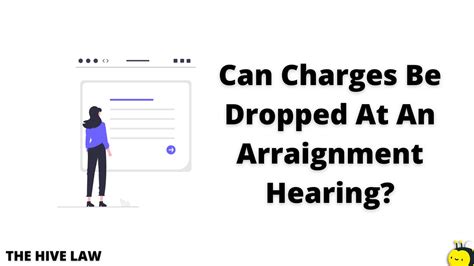Avoid Jail Time: How to Drop Charges in North Carolina
Facing criminal charges in North Carolina can be a terrifying experience. The fear of jail time, the impact on your reputation, and the uncertainty of the legal process can be overwhelming. Understanding how the process works, and how charges might be dropped, is crucial. This article provides valuable insights into navigating the North Carolina legal system and exploring options to potentially avoid jail time. Disclaimer: This information is for educational purposes only and does not constitute legal advice. You should always consult with a qualified North Carolina attorney for advice tailored to your specific situation.
Understanding North Carolina's Criminal Justice System
Before exploring how charges might be dropped, it's essential to understand the basic flow of a criminal case in North Carolina. The process typically involves:
- Arrest: You are arrested and formally charged with a crime.
- Arraignment: You appear before a judge, are informed of the charges, and enter a plea (guilty, not guilty, or no contest).
- Discovery: Both the prosecution and defense exchange evidence.
- Plea Bargaining: Negotiations between the prosecution and defense to reach an agreement on a plea.
- Trial: If a plea agreement isn't reached, the case proceeds to trial.
- Sentencing: If found guilty, the judge imposes a sentence.
How Charges Can Be Dropped in North Carolina
Charges in North Carolina can be dropped in several ways, each with its own complexities:
1. Insufficient Evidence:
This is the most common reason for charges being dropped. If the prosecution lacks sufficient evidence to prove guilt beyond a reasonable doubt, they may choose to dismiss the case. This often happens during the discovery phase when the prosecution realizes they don't have enough compelling evidence to proceed.
2. Witness Unwillingness or Unavailability:
A crucial element of a strong prosecution is reliable witness testimony. If key witnesses become unavailable (e.g., relocate, refuse to testify, or pass away) or prove unreliable, the prosecution's case may weaken significantly, leading to dismissal.
3. Plea Bargaining:
Plea bargaining is a common practice where the defendant agrees to plead guilty to a lesser charge or to a reduced sentence in exchange for the dismissal of more serious charges. This is a strategic decision that requires careful consideration with an attorney.
4. Prosecutorial Discretion:
Prosecutors have discretion in deciding which cases to pursue. Various factors, including the strength of the evidence, the severity of the crime, and the defendant's criminal history, influence their decision. They may choose to dismiss a case due to resource limitations or other priorities.
5. Errors in the Legal Process:
Charges can be dropped if significant procedural errors occurred during the arrest, investigation, or prosecution. This could involve issues with obtaining warrants, violating the defendant's rights, or presenting inadmissible evidence.
H2: What Happens After Charges Are Dropped?
Once charges are dropped, the case is officially dismissed. This typically results in the expungement of the arrest record, though the specifics vary. However, it's important to note that even with dropped charges, the arrest record might still be accessible to certain entities. Consulting with an attorney to understand the implications of dropped charges on your record is crucial.
H2: Can I Drop Charges Myself?
No, you cannot typically drop charges against yourself. The decision to dismiss charges rests primarily with the prosecutor. While you can participate in plea bargaining negotiations with the help of your attorney, the final decision to drop the charges remains with the prosecution.
H2: What Should I Do If I'm Facing Charges?
If you are facing criminal charges in North Carolina, immediate action is crucial. Contact a qualified criminal defense attorney as soon as possible. An experienced attorney can advise you on your rights, explore all available options, and represent your interests throughout the legal process. They can help you navigate the complexities of the legal system and work towards the best possible outcome, potentially avoiding jail time.
H2: How Can I Find a Good Criminal Defense Attorney?
Finding a reputable criminal defense attorney in North Carolina requires careful research. Look for attorneys with experience handling cases similar to yours, a strong track record of success, and positive client reviews. The North Carolina State Bar website can be a helpful resource for finding licensed attorneys in your area.
Facing criminal charges is a serious matter. Seeking professional legal help is the first and most important step toward protecting your rights and potentially avoiding jail time. Remember, this information is for educational purposes and should not be considered legal advice. Always consult with a qualified attorney in North Carolina for guidance specific to your situation.

